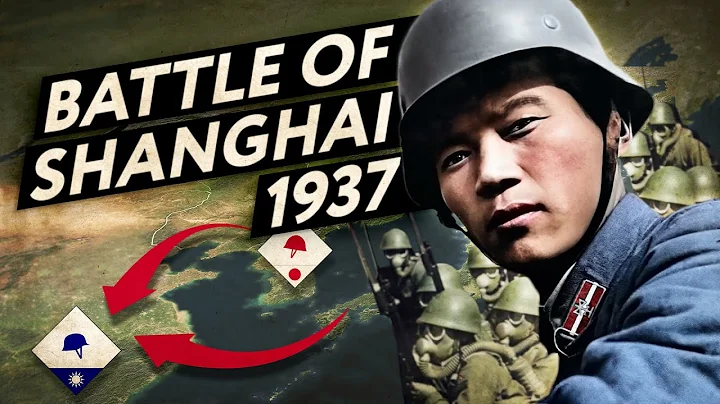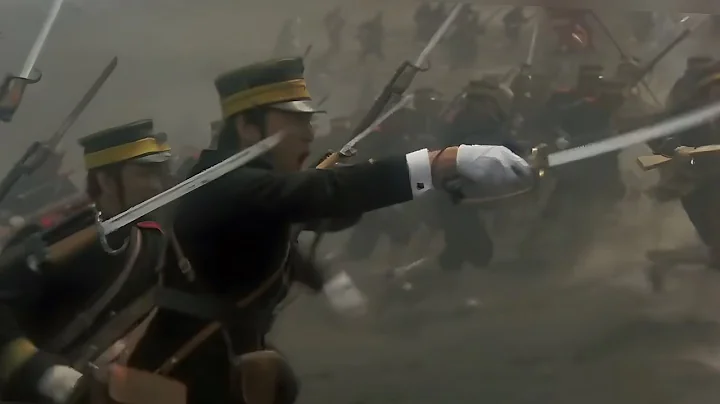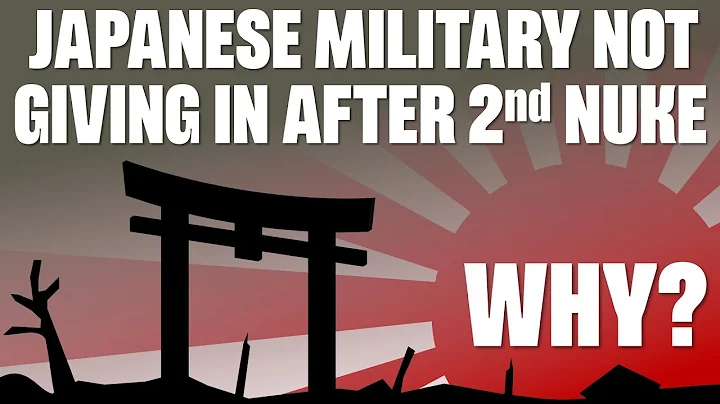
In Yan'an in 1938, almost everyone reached a consensus, especially military commanders such as Zhu De, Peng Dehuai, and He Long. Mao Zedong's war strategy was right: the Sino-Japanese war was a protracted war, and base areas behind enemy lines must be established. Stick to guerrilla warfare .
A year ago, not many people supported his idea. Everyone believed that guerrilla warfare could not attack the Japanese and was a sign of cowardice, and that they should fight the Japanese army head-on.

However, after several bloody battles, even if Pingxingguan Dajie won, the Eighth Route Army also paid a huge price. This made senior commanders like Zhu De and Peng Dehuai realize that the equipment of the Eighth Route Army and Japan were incomparable, and there was no point in fighting head-on. Odds.
Facts have verified that Mao Zedong's war strategy is correct. He won the respect of front-line military commanders.
Faced with the Kuomintang army's record of losing ground on the frontal battlefield, Chiang Kai-shek must be thinking, why does he not have people like Mao Zedong under his command? In what way is he inferior to him?

Whether in the Anti-Japanese War or the Liberation War, Mao Zedong's war strategy and military command were unmatched.
On the contrary, there are many senior KMT generals who have attended military academies, such as Chen Cheng, Gu Zhutong, Xue Yue graduated from Baoding Army Officer School.

There are also many people who have studied abroad. He Yingqin graduated from the Japanese Army Sergeant School , and Sun Liren graduated from the Virginia Military Institute in the United States.
On military theory, each of them can speak eloquently and write several monographs on military theory. In terms of military command capabilities, they have also experienced the test of war and defeated various Beiyang warlords .

But they just couldn't defeat Mao Zedong.
Why?
An excellent military commander should be a philosopher
Since the mid-19th century, China has been invaded by Western powers and reduced to a semi-colonial country, at the mercy of others. The Chinese have explored many ways to save the nation and survive, from learning skills from the barbarians in order to control them, to using Chinese learning as the body and Western learning as the application, but all have failed.

After the New Culture Movement began, there was a great criticism of traditional Chinese culture.
Chen Duxiu’s words represent the thoughts of people with lofty ideals at that time: the inherent ethics, law, academics, etiquette and customs are all the legacy of the feudal system... expelled our people from the world of the twentieth century, and brought slaves, cattle and horses into the dark ditch. That's all, what more can you say? To be conservative in this regard, I honestly don’t know what kind of institutional cultural relics can be adapted to survive in this world. I would rather endure the demise of the national quintessence of the past than the present and future nations that cannot survive in the world and have to be reduced.
This idea has influenced many people. They believe that Western culture is better than Chinese culture in terms of thought, art, science, politics, education, religion, philosophy, and literature.
So when the senior KMT generals studied in military academies, they learned Western military theories. This combat strategy pursues decisive battles and decisive victories, and fights head-on with real swords and guns. It has been passed down from the age of knights.

But in the era of fission, Mao Zedong did not advocate the complete westernization of and like others, blindly worshiping anything in the West.
Instead, he preferred to read Chinese classical books such as "Twenty-Four Histories", "Sun Tzu's Art of War", etc., but he was not averse to accepting Western military theories. When he was in Yan'an, he was familiar with Clausewitz "On War" highly praised. He integrated the two military theories and applied them to practice.

Mao Zedong commanded many wonderful battles, and the shadow of "The Art of War" can be seen. Do not confront the enemy head-on, avoid their edge, study the opponent's strength and weaknesses, and patiently wait for the best opportunity. When the enemy appears, the enemy is exposed. If they find their weakness, they immediately mobilize their troops and attack the enemy mercilessly. This is true whether it is counter-encirclement and suppression or the Long March across Chishui.
Clausewitz believed that military affairs cannot be limited to listing empirical phenomena while ignoring the internal connections of the war as a whole; or deriving complete theoretical systems based on individual experiences alone, thereby being divorced from combat reality. Military strategists should have philosophical minds and cannot piece together content that has no intrinsic connection into a whole, let alone stick to details and make mountains out of molehills.

From this point of view, an excellent military commander should also be a philosopher. Obviously Mao Zedong did it. He would consider the overall situation and compare the long-term and short-term advantages and disadvantages. He did not care about the gains and losses of one city or one pool, but used time to accumulate relative advantages and follow the trend. However, the senior Kuomintang generals were limited to the empirical phenomena of war, planning for the moment and the gains and losses of a city.
Excellent military commanders will "walk on their own"
One of Mao Zedong's hobbies was to do research himself.
This is a habit developed in youth. When the 16-year-old Mao Zedong left his hometown of Shaoshan on a pole, he never stopped and kept traveling across the territory of China.
At that time, Beijing and Shanghai were the centers of the New Culture Movement, where various ideological trends collided. The trend of studying abroad was popular among young people. Mao Zedong said to a friend in Changsha who invited him to study abroad: "I feel that I I don’t know enough about the country, and it would be more beneficial to spend my time in China.”

Although part of the reason for this is insufficient funds to support everyone to study abroad, what Mao Zedong said is true to his heart.
Looking back, the group of people who studied abroad brought back new ideas and new methods of struggle and became the trendsetters of the times after returning to China. However, they did not understand their country as well as Mao Zedong, and therefore fell a lot.
The same was true for the military generals of the Kuomintang at the same time. They did not measure this land step by step like Mao Zedong and understand the people who were born and raised here.

They follow the elite development route. As their status rises, their official ranks get higher and higher, and the treatment they enjoy gets better and better. They have villas for housing and cars for travel. They are far away from soldiers and far from the battlefield.
They will look at the map in a dedicated war room and listen to reports from their subordinates. However, they have no idea how much information is filtered out by this layer of reporting.

They believe that to win the war, we need better equipment and more food. We rely on soldiers to fight the war, rather than relying on the masses and mobilizing the masses.
During the long-term battle, Mao Zedong would think and summarize wherever he went. In 1930, Mao Zedong led the Fourth Red Army to Xunwu from Huichang, Jiangxi.
Taking advantage of the opportunity when the troops went to nearby counties to mobilize the masses to carry out the agrarian revolution, he began to investigate the business of Xunwucheng, directly held investigation meetings with people from all walks of life, mastered a large amount of first-hand materials, and wrote an article " "Oppose Bookism", which proposed: "Without investigation, there is no right to speak." This laid the foundation for the subsequent development of flexible land policies.
That’s why the Eighth Route Army was able to continuously develop and expand its base areas behind enemy lines. During the Liberation War, ordinary people pushed scooters to help the People’s Liberation Army. In a sense, whoever the people side with can win the war. This is what Mao Zedong said: "The soldiers and the people are the foundation of victory."
Mao Zedong's victory came from his continuous drawing of strength from traditional Chinese culture and from his clear understanding of China's national conditions. He was a thinker, a philosopher, and a practitioner, so he was able to hit the key points of the times faster than his contemporaries and denounce Fang Qiu on the battlefield.
personal opinion:
❶ Vision comes from talent. Chang Kaishen's talent is not bad, but it depends on who he is compared with. Compared with the teachers, he is not a little bit worse. Therefore, in terms of political ability , military command, strategic foresight, understanding and employing people, and even historical knowledge and literature, he is crushed by the teacher. Because the teacher is the top genius in Chinese history.
❷I think the fundamental difference between Chairman Mao and Chiang Kai-shek is not in talent, but in vision
❸Chairman Mao actually received a good education. The most important thing is that his self-learning ability is really strong, and it comes from the heart Likes to read. . .
❹ Chairman Mao is already better than most people in this country just by "reading the Twenty-Four Histories". The key is that he not only read it, but also read it several times and annotated it. . .
❺Lao Jiang Actually, I don’t think he has poor talent, and he is actually quite lucky. . . Lao Jiang's biggest problem was that his vision was too low. . . He has never truly respected the people of this country, nor has he thought about the future of this country.
❻ Well said! Missing that era does not mean missing the material level of that era, but the spirit and belief. Today's reform is indeed great, but it is based on the solid foundation laid in that era, coupled with correct leadership and the efforts of all the people.
#Chairman Mao Thought Study##Great man Chairman Mao##Pay tribute to the great leader Chairman Mao##I am creating in the headlines#





















